-
 Bitcoin
Bitcoin $117900
-0.06% -
 Ethereum
Ethereum $3598
1.67% -
 XRP
XRP $3.433
0.63% -
 Tether USDt
Tether USDt $1.000
-0.02% -
 BNB
BNB $733.2
0.65% -
 Solana
Solana $176.9
-0.25% -
 USDC
USDC $0.9999
0.00% -
 Dogecoin
Dogecoin $0.2417
2.67% -
 TRON
TRON $0.3178
-2.25% -
 Cardano
Cardano $0.8310
2.11% -
 Hyperliquid
Hyperliquid $44.43
0.23% -
 Stellar
Stellar $0.4628
1.17% -
 Sui
Sui $3.852
2.09% -
 Chainlink
Chainlink $18.48
4.01% -
 Hedera
Hedera $0.2684
3.59% -
 Avalanche
Avalanche $24.57
4.87% -
 Bitcoin Cash
Bitcoin Cash $513.5
-0.02% -
 Shiba Inu
Shiba Inu $0.00001492
1.99% -
 Litecoin
Litecoin $113.2
11.61% -
 UNUS SED LEO
UNUS SED LEO $8.980
0.12% -
 Toncoin
Toncoin $3.211
0.51% -
 Polkadot
Polkadot $4.406
4.64% -
 Uniswap
Uniswap $10.16
0.26% -
 Monero
Monero $323.1
1.04% -
 Ethena USDe
Ethena USDe $1.001
-0.02% -
 Bitget Token
Bitget Token $4.936
1.21% -
 Pepe
Pepe $0.00001346
3.98% -
 Dai
Dai $1.000
-0.01% -
 Aave
Aave $318.9
-1.42% -
 Cronos
Cronos $0.1211
2.74%
What networks does Coinbase Wallet support?
Coinbase Wallet supports multiple blockchains like Ethereum, BSC, Polygon, and Avalanche, allowing users to manage assets and interact with dApps across various networks.
Jul 20, 2025 at 03:49 am
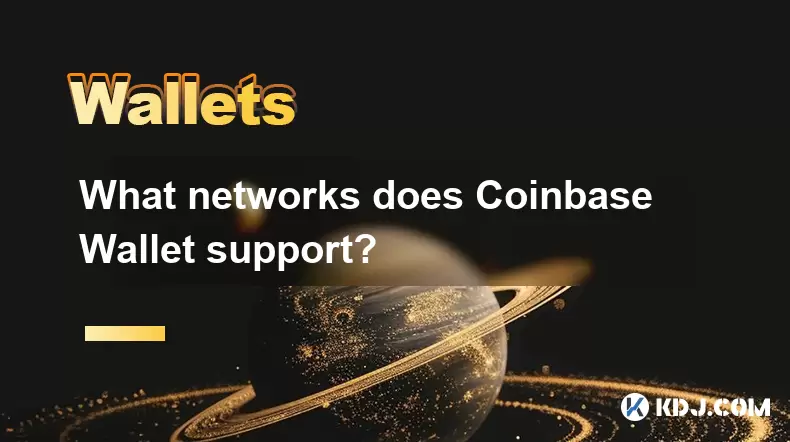
Understanding the Network Support of Coinbase Wallet
Coinbase Wallet is a non-custodial cryptocurrency wallet that allows users to store, manage, and interact with various blockchain networks. One of the key features of this wallet is its multi-chain support, which enables users to interact with multiple decentralized applications (dApps) and tokens across different blockchains. The wallet supports a wide range of networks, including Ethereum, Binance Smart Chain, Polygon, Avalanche, and several others.
When using Coinbase Wallet, users have the ability to switch between different networks depending on the type of assets they are managing or the dApps they are interacting with. This flexibility makes it a popular choice among users who engage with multiple blockchain ecosystems. However, it's important to note that not all networks are enabled by default in the wallet. Some may require manual addition or configuration before they can be used.
Ethereum and ERC-20 Token Compatibility
One of the primary networks supported by Coinbase Wallet is the Ethereum blockchain. As Ethereum is the leading platform for decentralized finance (DeFi), non-fungible tokens (NFTs), and smart contracts, having full support for this network is essential for most crypto users. The wallet allows users to send, receive, and store ERC-20 tokens, which are the standard token format on Ethereum.
In addition to basic token support, Coinbase Wallet also enables users to interact with Ethereum-based dApps directly from the wallet interface. This includes connecting to platforms like Uniswap, Aave, and OpenSea. Users must ensure they have sufficient ETH in their wallet to pay for gas fees when interacting with these applications. Gas fees are required for any transaction or interaction on the Ethereum network.
Support for Binance Smart Chain and BEP-20 Tokens
Coinbase Wallet also supports the Binance Smart Chain (BSC) network, which is known for its low transaction fees and fast block times. This makes it a popular choice for DeFi users and traders. The wallet allows users to store and manage BEP-20 tokens, which are the standard token type on BSC.
To use BSC with Coinbase Wallet, users need to manually add the Binance Smart Chain network to their wallet settings. This involves configuring parameters such as the network name, RPC URL, chain ID, and currency symbol. Once added, users can switch to the BSC network and begin interacting with BSC-based dApps like PancakeSwap and Binance NFT marketplace.
Integration with Layer 2 and Sidechain Networks
Beyond the main Ethereum and BSC networks, Coinbase Wallet also supports Layer 2 solutions and sidechains, which are secondary frameworks or protocols built on top of existing blockchains to improve scalability and reduce transaction costs. Networks like Polygon (formerly Matic Network) and Avalanche are supported, allowing users to transact with significantly lower gas fees.
For example, adding Polygon (Matic) to Coinbase Wallet enables users to participate in NFT marketplaces like OpenSea with minimal transaction costs. Similarly, Avalanche integration allows for fast and cheap transfers of AVAX tokens and other assets on the Avalanche ecosystem. Each of these networks requires manual configuration in the wallet, similar to how Binance Smart Chain is added.
How to Add and Switch Between Networks in Coinbase Wallet
To interact with different networks in Coinbase Wallet, users must know how to add and switch between them. Here’s a detailed guide:
- Open the Coinbase Wallet app and navigate to the settings menu.
- Select the "Networks" option to view the list of available networks.
- If the desired network is not listed, choose the "Add Network" option.
- Enter the required parameters such as network name, RPC URL, chain ID, currency symbol, and block explorer URL.
- Once added, users can switch between networks by returning to the main wallet screen and selecting the network from the top dropdown menu.
It's crucial to double-check the details when adding a new network to avoid sending funds to the wrong chain. Incorrect network configuration can result in irreversible loss of funds, so users should verify all parameters from trusted sources before proceeding.
FAQs
Can I use Coinbase Wallet with Solana or other high-performance blockchains?
Currently, Coinbase Wallet does not natively support Solana or other high-performance blockchains like Cardano or Polkadot. While the wallet supports many EVM-compatible chains, Solana uses a different architecture and requires a separate wallet like Phantom or Solflare.
Is it safe to add custom networks to Coinbase Wallet?
Adding custom networks is generally safe if done correctly. However, users must ensure that they input the correct network parameters and only use trusted sources for configuration details. Incorrect settings can lead to loss of funds or failed transactions.
Does Coinbase Wallet support testnets for developers?
Yes, Coinbase Wallet supports several testnets including Rinkeby, Ropsten, and Kovan for Ethereum developers. These testnets allow developers to test smart contracts and dApps without using real funds. Testnet support is useful for developers building and debugging blockchain applications.
Can I use Coinbase Wallet to interact with NFT marketplaces on different networks?
Yes, once you’ve added and selected the appropriate network, Coinbase Wallet can connect to NFT marketplaces like OpenSea (Ethereum), BakerySwap (BSC), and Crypto.com (CRO Chain). Ensure that the marketplace supports wallet connectivity via WalletConnect or in-app browser integration.
Disclaimer:info@kdj.com
The information provided is not trading advice. kdj.com does not assume any responsibility for any investments made based on the information provided in this article. Cryptocurrencies are highly volatile and it is highly recommended that you invest with caution after thorough research!
If you believe that the content used on this website infringes your copyright, please contact us immediately (info@kdj.com) and we will delete it promptly.
- XRP Mining, the GENIUS Act, and Coin Holders: A New Era?
- 2025-07-20 06:30:12
- Arctic Pablo Coin: Navigating the Icebound Estates Presale and Token Burn Strategy
- 2025-07-20 06:30:12
- Arctic Pablo Coin's Myth-Themed Presale: Icebound Estates and Beyond!
- 2025-07-20 06:50:12
- Snorter Token's Presale Success: Riding the GENIUS Act Wave in the Crypto World
- 2025-07-20 06:50:12
- PENGU Token's Breakout Momentum: Riding the Wave in a Bearish Market
- 2025-07-20 07:10:12
- Crypto's 100x Hunt in 2025: Beyond the Hype
- 2025-07-20 07:10:12
Related knowledge
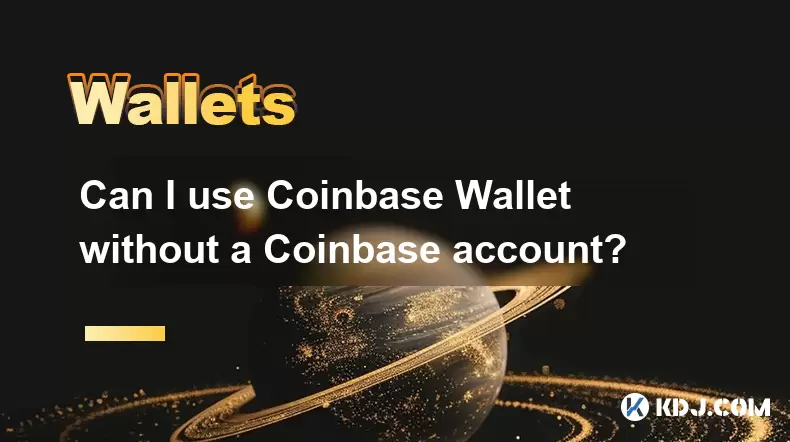
Can I use Coinbase Wallet without a Coinbase account?
Jul 18,2025 at 04:35am
What is Coinbase Wallet?Coinbase Wallet is a self-custodial wallet that allows users to store, send, and receive various cryptocurrencies directly on ...
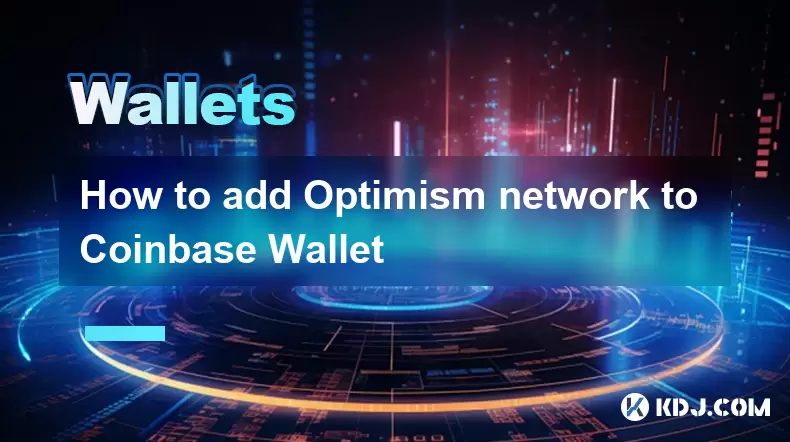
How to add Optimism network to Coinbase Wallet
Jul 20,2025 at 05:21am
What is the Optimism Network?The Optimism network is a Layer 2 scaling solution built on top of the Ethereum blockchain. It aims to enhance transactio...
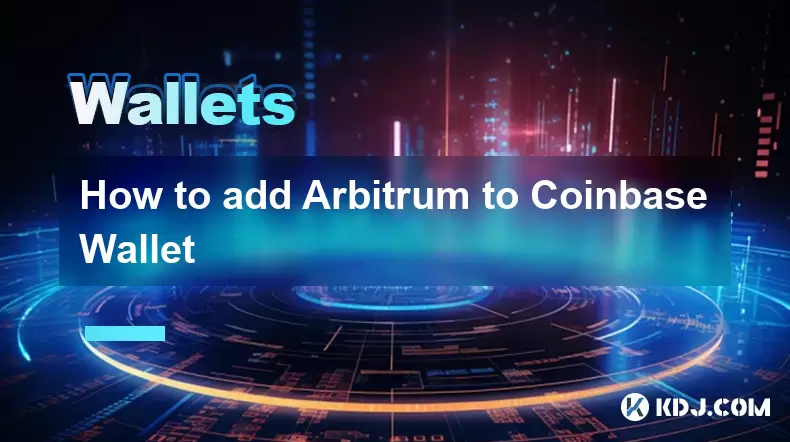
How to add Arbitrum to Coinbase Wallet
Jul 18,2025 at 03:00pm
Understanding Arbitrum and Its Integration with Coinbase WalletArbitrum is a layer-2 scaling solution developed by Offchain Labs to enhance the speed ...
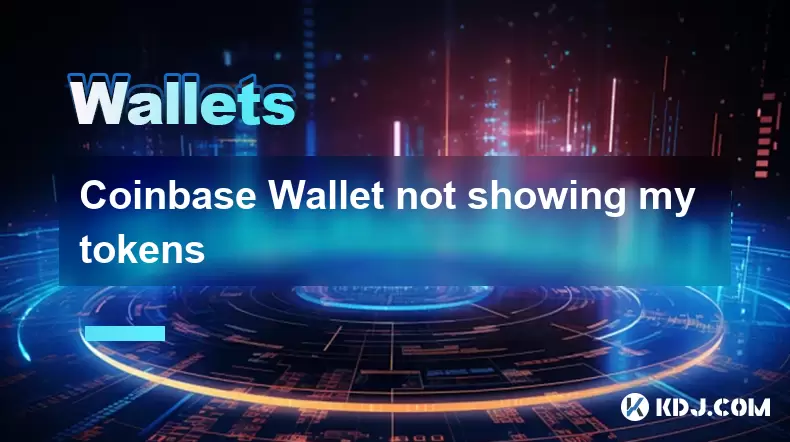
Coinbase Wallet not showing my tokens
Jul 18,2025 at 09:49am
Understanding Coinbase Wallet Token Display IssuesIf you're experiencing issues where Coinbase Wallet not showing my tokens, it can be frustrating, es...
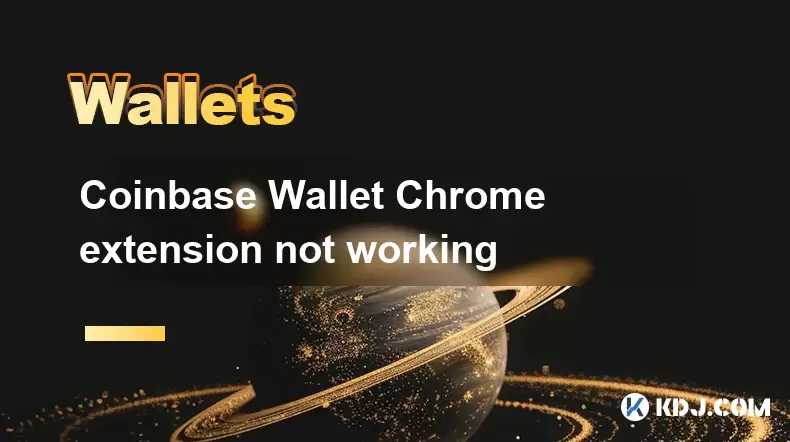
Coinbase Wallet Chrome extension not working
Jul 19,2025 at 05:14am
Understanding Coinbase Wallet Chrome ExtensionThe Coinbase Wallet Chrome extension is a browser-based cryptocurrency wallet that allows users to inter...
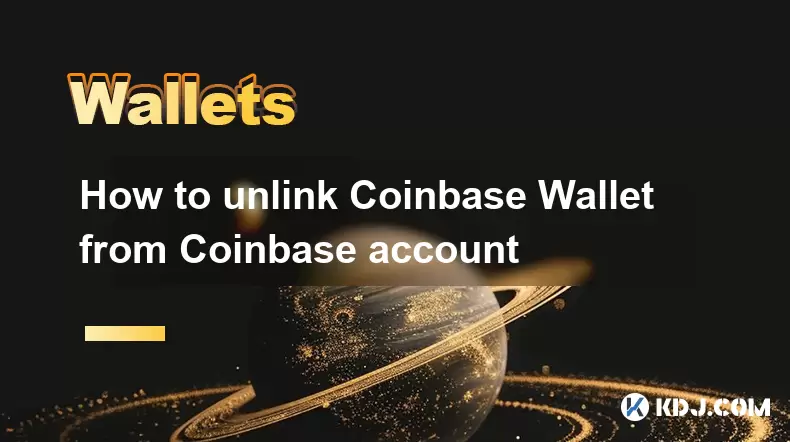
How to unlink Coinbase Wallet from Coinbase account
Jul 19,2025 at 09:28pm
Understanding the Relationship Between Coinbase and Coinbase WalletBefore proceeding with the process of unlinking your Coinbase Wallet from your Coin...

Can I use Coinbase Wallet without a Coinbase account?
Jul 18,2025 at 04:35am
What is Coinbase Wallet?Coinbase Wallet is a self-custodial wallet that allows users to store, send, and receive various cryptocurrencies directly on ...

How to add Optimism network to Coinbase Wallet
Jul 20,2025 at 05:21am
What is the Optimism Network?The Optimism network is a Layer 2 scaling solution built on top of the Ethereum blockchain. It aims to enhance transactio...

How to add Arbitrum to Coinbase Wallet
Jul 18,2025 at 03:00pm
Understanding Arbitrum and Its Integration with Coinbase WalletArbitrum is a layer-2 scaling solution developed by Offchain Labs to enhance the speed ...

Coinbase Wallet not showing my tokens
Jul 18,2025 at 09:49am
Understanding Coinbase Wallet Token Display IssuesIf you're experiencing issues where Coinbase Wallet not showing my tokens, it can be frustrating, es...

Coinbase Wallet Chrome extension not working
Jul 19,2025 at 05:14am
Understanding Coinbase Wallet Chrome ExtensionThe Coinbase Wallet Chrome extension is a browser-based cryptocurrency wallet that allows users to inter...

How to unlink Coinbase Wallet from Coinbase account
Jul 19,2025 at 09:28pm
Understanding the Relationship Between Coinbase and Coinbase WalletBefore proceeding with the process of unlinking your Coinbase Wallet from your Coin...
See all articles

























































































